This includes optimizing HTML elements like title tags, meta descriptions, the content, internal links, and more to make it easy for search engines to understand your website.
As opposed to On-Page SEO, Off-Page SEO refers to optimizing factors external to your website (like backlinks from other websites, brand mentions, and social signals).
In this guide, we’ll teach you everything you need to know!
Why Is On-Page SEO Important?
On-Page SEO is important because this shows search engines what your website and your pages are about. Without proper on-page optimization, it will be difficult to rank for your targeted keywords and generate traffic.
Not sure how your pages are ranking? You can use our Google ranking checker for free!
By understanding how to optimize your site, your chances of ranking will be greatly increased!
How To Do OnPage SEO
While optimizing your site for SEO involves many factors, here are the major parts of OnPage optimization you’ll want to consider:
Title Tag
The title tag is a piece of HTML code on each page of your site that tells search engines what the page is about. It’s often what is displayed in search engine results pages.
You’ll want to make sure that your title tag includes your target keyword and is written in a compelling way that makes a user want to click it.
You can learn more about title tags here.
Meta Description
The meta description is a piece of HTML code on each page of your site that describes what the pages are about. It’s often displayed right below the title tag in search engine results pages.
Header Tags
Header tags are pieces of HTML code that help structure the headings and the subheadings of a page. These can tell search engines what the most important elements of the page are.
As an example, the h1 tag is generally the main header of a page. You’ll want to include your keyword here.
Content Optimization
The actual content and text of a page is also an important element. You’ll want to make sure to include enough content on the page in text form for users and search engines.
In fact, studies show that longer content tends to rank better.
Make sure you include your keywords in the content of the page in a natural way.
Learn more about content optimization here.
Image Optimization
Images on your page can also give clues to search engines as to what the page is about.
Before uploading your images, use descriptive filenames. For instance, you can name a file “tampa-fl-roof-repair-exmple.jpg” as opposed to “image1.jpg”
Alt text is a piece of HTML code that tells browsers and search engines the contents of an image. Similar to the file names, you can use this to describe the image.
Internal links
On your website, you can internally link to other pages of your site. This helps search engines find the pages of your site, and also pass authority to other pages.
Learn more about internal links here.
URL structure
Using SEO-friendly URLs can help signify what your pages are about to search engines.
As an example, have you ever seen a URL that looks like this?
example.com/383888v20/10-29-2024/388883000293999?
The URL just contains random numbers and doesn’t help the user or search engines understand the page. Instead, you’d be better off using a URL that contains your keywords like:
example.com/tampa-fl-roof-repair
Conclusion
While there are many factors that go into On-Page SEO, these are the major elements that you’ll want to consider. If you want to see how your site is doing, try our free SEO Report Tool.
If you’re considering leaving your on-page optimization to the experts, take a look at our service, HOTH Optimization.
In the next chapter, we’ll dive deeper into OnPage SEO!




